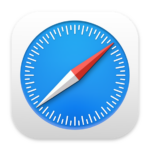Are you tired of the same old browser, or just curious about what else is out there? We’ve all heard of Chrome, Firefox, Safari, and Edge, but what about Opera, Arc, and Brave?
But if you decide to swap – how will that effect how you do things? And in particular web development?
In this blog post, we’re going to dive deep into the world of web browsers and compare these seven browsers to help you find the perfect fit for your browsing needs.
In today’s digital age, choosing the right web browser can make a huge difference in your online experience. Each browser has its own unique features, speed, security, and design. Whether you’re a casual internet surfer, a tech enthusiast, or a developer, there’s a browser out there that’s perfect for you.
Chrome
Chrome, the reigning champion in the browser wars, is known for its speed, simplicity, and vast library of extensions. Developed by Google, Chrome dominates the market share with its clean interface and seamless integration with Google’s ecosystem.
For Web Development: Chrome is widely regarded as the best browser for web development due to its excellent developer tools, extensive extension ecosystem, and strong support for modern web standards.
 Firefox
Firefox
Firefox has long been the go-to browser for those who prioritize privacy and customization. Developed by Mozilla, Firefox offers a robust set of privacy features and a vibrant community-driven extension library.
For Web Development: Firefox is also highly regarded for web development, with robust developer tools, good performance, and a strong commitment to privacy and open standards.
 Safari
Safari
Safari, Apple’s flagship browser, is known for its sleek design and integration with macOS and iOS devices. Safari is fast, energy-efficient, and tightly integrated with Apple’s ecosystem, making it a favorite among Apple users.
For Web Development: Microsoft Edge has made significant improvements and is now based on Chromium, offering similar developer tools and compatibility to Chrome, making it a strong contender for web development.
 Edge
Edge
Edge, Microsoft’s latest browser, has come a long way from its predecessor, Internet Explorer. Built on Chromium, Edge offers excellent compatibility with websites, strong privacy controls, and integration with Microsoft services.
For Web Development: Safari is the default browser on macOS and iOS, and while it has excellent performance and integration with Apple’s platforms, its developer tools are generally considered less feature-rich compared to Chrome and Firefox.
 Opera
Opera
Opera is a versatile browser known for its innovative features like built-in VPN, ad blocker, and battery saver mode. Opera has a sleek design and focuses on providing a fast and secure browsing experience.
For Web Development: Opera is based on Chromium and has a decent set of developer tools, but it’s less commonly used compared to Chrome and Firefox.
 Brave
Brave
Brave is another privacy-focused browser that stands out for its built-in ad and tracker blockers. Brave rewards users with Basic Attention Tokens (BAT) for opting into privacy-respecting ads, offering a unique approach to funding content creators.
For Web Development: Brave is another Chromium-based browser with a strong focus on privacy, but its developer tools are not as extensive as Chrome or Firefox.
 Arc
Arc
Arc is a relatively new entrant in the browser market, known for its minimalistic design and privacy-focused features. It aims to provide a simple and fast browsing experience without compromising on user privacy.
For Web Development: Arc is less well-known compared to other browsers on the list. If you meant Avant Browser (Arc Browser), it is not typically considered a top choice for web development.
Comparison
Now, let’s compare these browsers across a few key criteria:
- Speed: Chrome and Firefox are known for their speed, while Brave and Opera also perform well in this regard.
- Privacy: Firefox, Brave, and Safari are leaders in privacy features, offering robust protections against trackers and other online threats.
- Customization: Firefox and Chrome are highly customizable with a wide range of extensions and themes.
- Integration: Safari and Edge offer seamless integration with their respective operating systems.
- Innovative Features: Opera stands out with its built-in VPN and ad blocker, while Brave offers a unique way to support content creators with BAT.
Conclusion
Choosing the right web browser ultimately depends on your priorities. If you’re deeply invested in Google’s ecosystem, Chrome might be your best bet. For privacy-conscious users, Firefox and Brave offer strong protections against tracking. If you’re an Apple enthusiast, Safari seamlessly integrates with macOS and iOS. Edge is a solid choice for Windows users looking for compatibility and integration with Microsoft services. Opera and Arc provide innovative features and a clean browsing experience.
In the end, the best browser is the one that meets your needs for speed, security, privacy, and customization. Try a few out and see which one feels right for you!
Additional Resources
- Want to learn more about each browser? Check out their official websites:



 Firefox
Firefox Safari
Safari Edge
Edge Opera
Opera Brave
Brave Arc
Arc




